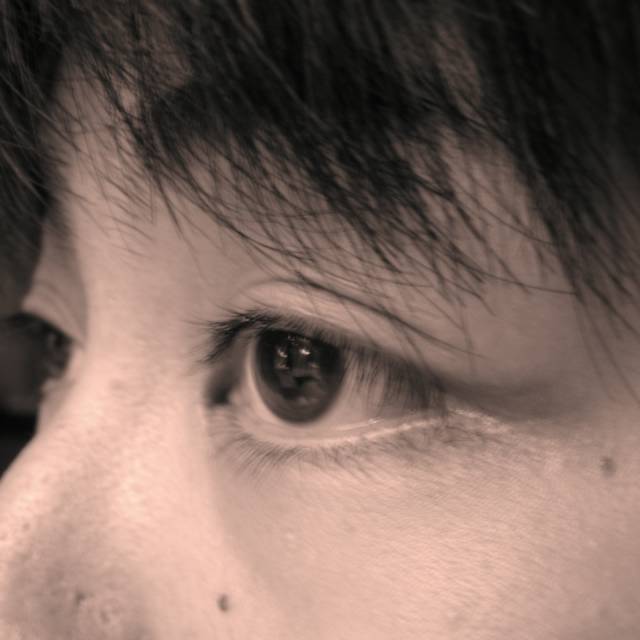I'm a "published poet"! Or soon I'll be.
With a push on my back from my creative writing teacher, I entered this poem, along with three photographs to a poetry and graphics competition held by the English department of my college. When I came back home from the West coast last night, there was a letter on the dining table which said that the poem in question was selected a winner! What a surprise!
The poem at first had a first stanza, which described the crisp coolness against my soles, of the wooden corridor, polished to jet-black by generations of young monks over centuries. The tactile feel of the corridor in the cool shade of the temple was the starting point of the poem, which drifted to a completely different direction. The idea of vivid tactile feel came to me as a form of an existing Japanese haiku, which captures a moment of startle and deep mourning of a widower who accidentally stepped on his late wife's calm, which felt sharply cold on his bare foot.
Once I set my mind on the scene of the temple with a stark contrast between the brazing summer outside and the refreshing coolness inside, the rest almost naturally flowed out of my keyboard-tapping fingertips. As is always case with my imaginative writing, however, I couldn't determine what the theme was. All I had was the heap of images. I needed a conclusion of some sort, to give the poem a sense of closure. First I tried to end the poem by suggesting the my own mortality as parallel to that of the cicadas and the monks, but it made the poem seem stereotypically oriental and overtly religious, which I am not. After a few tickerings, I abandoned the idea altogether.
What I found in the poem instead was my own longing of what is essentially Japanese--loud cicadas, scorching summer sun, lingering fume of incense, etc. The images themselves were what the poem needed to convey, not what they might or might not imply. I decided to follow that line, and the last stanza materialized.
The poem went under constructive scrutiny of a peer group in my creative writing class. It was a stimulating and fascinating experience to listen to what they had read in my poetry. A girl pointed out an alliteration effect which I hadn't been aware of. A boy said the lack of punctuation and the fluid flow of the poem got associated within him with the Buddhist idea of infinite reincarnation, which, again, was completely unintentional yet defendable. To see my own creation be blown different lives into it by readers was a reaffirmation of the idea that a literary text is not merely the sequence of words but a dynamic process of destruction and reconstruction of what was written in the minds of the readers.
All that said, the poem will be included in the annual publication of the college "Ariel" a few months later. Then I can say I am a published poet, with a brush of red on my cheeks...



0 Comments:
Post a Comment
<< Home